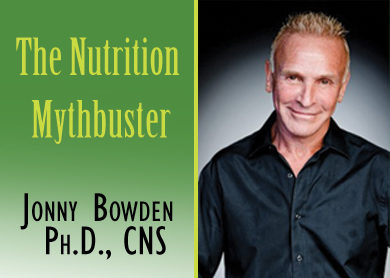While we’ve all been busy focusing on avoiding cholesterol and fat we’ve ignored what is turning out to be one of the most important health concerns of our time—inflammation.
Chronic inflammation is literally a stealth bomber, damaging your body just as deadly and silently as an invisible, odorless poison gas. It’s been linked to diseases as diverse as cancer, Alzheimer’s, obesity, congestive heart failure and diabetes. Inflammation is truly what Time magazine called it decades ago: “The Silent Killer.”
Chronic Inflammation: The Slow Killer
Nearly everything that’s an irritant to the system—the air pollution we breathe, the tobacco smoke we inhale directly or indirectly, the some 80,000 chemicals we’re exposed to in our environment—has the potential to produce some level of inflammation.
The food we eat can produce an inflammatory reaction—and frequently does. Some foods, like sugar and excess vegetable oils, have the effect of turbo-charging our inflammatory production pathways, while some foods (like wild salmon, with its rich content of omega-3s and the antioxidant astaxanthin) have precisely the opposite effect.
Most researchers agree that the ideal relationship of omega-6 (pro-inflammatory fatty acids) to omega-3s (anti-inflammatory fatty acids) is about 1:1, exactly the ratio you find in the diet of the hunter gatherer societies, which were also remarkably free of chronic diseases. But the ratio of pro-inflammatory fats to anti-inflammatory fats in the typical Western diet is a whopping 16:1, or even higher.
What You Can Do About Inflammation
If you can put out the “fire within,” or at least stop it from spreading, you’ll be well ahead of the game.
And it all starts with food.
The plant kingdom is absolutely loaded with natural anti-inflammatories. (One example: quercetin, found in onions and apples.) Some of the anti-inflammatory superstars that you should include in your diet on a regular basis are:
- Onions
- Garlic
- Leeks
- Leafy greens (e.g., spinach, chard, kale)
- Tomatoes
- Bell Peppers
- Brassica vegetables (e.g., Brussels sprouts, cabbage, broccoli, cauliflower)
- Beans: all types
- Nuts and seeds
- Spices (ginger, turmeric, cinnamon, cloves)
- Herbs: parsley, rosemary, thyme, oregano, mint, tarragon, dill
- Tea (all types)
- Red wine
- Cocoa/chocolate (minimum sugar, maximum chocolate)
- Flaxseeds and flax oil
Many supplements can help lower inflammation. Here’s a short guide to the most important ones.
Omega-3: The Wellness Molecule
Omega-3s are among the most anti-inflammatory substances on the planet and should be part of everyone’s supplement program. At this point, there is so much research exists to confirm this that it doesn’t seem necessary to reiterate it here.
Omega-7: Bold New Discovery, Researched at the Cleveland Clinic
Omega-7 is a fatty acid found in cold-water fish, as well as macadamia nuts and sea buckthorn berries. It has beneficial effects on metabolic syndrome, diabetes, weight, triglycerides and insulin resistance. A study at the prestigious Cleveland Clinic found that omega-7 lowered c-reactive protein—a test for systemic inflammation—by 44%. Barlean’s has a superb omega-7 product.
Magnesium: The Great Relaxer
Magnesium supplements are a must for those who want to protect their heart. Magnesium lowers blood pressure, helps control blood sugar and relaxes the lining of the blood vessels. And almost all dietary surveys show that Americans aren’t getting nearly enough.
Magnesium dilates the arteries thus reducing blood pressure and making it far easier for the heart to pump blood and for the blood to flow freely. Because blood pressure can contribute to inflammatory lesions in the vascular walls, it’s a good idea to include it in an anti-inflammatory supplement program.
Curcumin: The New Superstar of Supplements
This extract from the Indian spice turmeric has multiple benefits, not the least of which is that it’s highly anti-inflammatory. Scientific research has demonstrated its anti-inflammatory, anti-oxidant, anti-thrombotic, and cardiovascular protective effects (2). It also reduces oxidized LDL cholesterol (3). Curcumin in general isn’t well absorbed, so I like supplements with BCM-95 curcumin, as it has been shown to be more absorbable than run-of-the-mill curcumin.
Resveratrol: Not Just for Anti-Aging
Resveratrol is the ingredient in red wine that’s best known for its “anti-aging” activity. It helps protect the arteries, improves their elasticity, inhibits blood clots, and lowers both oxidized LDL and blood pressure. (4). Not a bad resume! It’s both a strong anti-oxidant and a strong anti-inflammatory, inhibiting a number of inflammatory enzymes that can contribute to heart disease. It also inhibits the ability of certain molecules to stick to the walls of the artery where they can take up residence and contribute to inflammation (5). The recommended dose is 200 mg a day of trans-resveratrol, the active component of resveratrol. Read labels carefully: many won’t tell you how much resveratrol is of the trans-variety. Reserveage makes resveratrol that is 100% trans, the gold standard for resveratrol supplements.
MSM
MSM is methyl sulfonyl-methane, a naturally anti-inflammatory that blocks the transmission of impulses in nerve fibers that carry pain signals. It’s long had the reputation of being great for joint health and the pain of arthritis. It has a high sulfur content, which makes sense when you realize that for centuries people have visited sulfur-rich hot springs for muscle aches and pains. The biochemical precursor to MSM—dimethyl sulfoxide—has been studied extensively for pain and reduction of inflammation for years.
Boswellia
The herb boswellia is well-known for its ability to lower inflammation. 150 mg three times a day (or the equivalent) is recommended for two or three months. It has been used effectively in combination with ginger, turmeric and ashwaganda and provided beneficial for inflammation and pain associated with osteoarthritis and rheumatoid arthritis (7). BosPure is a unique extract that is standardized to contain more than 10% natural AKBA (acetyl-11-keto-β-boswellic acid), the most powerful boswellic acid, and can be found in some commercial products.
GLA
GLA (gamma linolenic acid) is an anti-inflammatory omega-6 fatty acid (8,9) and the active ingredient in evening primrose oil, borage oil, and black currant oil. (The average 1,000 mg dose of evening primrose oil contains about 100 mg of GLA.) GLA seems to have a synergistic effect with the long-chain fatty acid EPA (eicosapentaenonic acid) and should be given together with omega-3 fish oil. Try to get 1,000 mg a day of GLA (in conjunction with 2-4 grams of combined EPA-DHA from fish oil).
The Bottom Line
Inflammation is likely to emerge as the health concern of the decade, but the good news is that you can do a great deal to combat it. Healthy, whole foods, plenty of omega-3 fats, and a minimum of sugar in your diet is a great place to start! WF
References
- http://andersongg.com/Assets/provinal_ClevelandClinic.pdf
- http://www.ncbi.nlm.nih.gov/pubmed/19233493
- M. Houston, What Your Doctor May Not Tell You About Heart Disease (New York: Grand Central Life and Style, 2002)
- Ibid
- http://atvb.ahajournals.org/content/23/4/622.full.pdf
- http://www.eurekalert.org/pub_releases/2010-03/esoc-ssc032910.php
- Bowden, J., The most effective natural cures on earth, (Fairwinds Press, 2008)
- http://www.ncbi.nlm.nih.gov/pubmed/17168669
- http://www.ncbi.nlm.nih.gov/pubmed/2550629
 Jonny Bowden, “the Nutrition Myth Buster”™ is a board-certified nutritionist and the best-selling author of The Great Cholesterol Myth and 13 other books. Visit him at www.jonnybowden.com.
Jonny Bowden, “the Nutrition Myth Buster”™ is a board-certified nutritionist and the best-selling author of The Great Cholesterol Myth and 13 other books. Visit him at www.jonnybowden.com.
Posted on WholeFoods Magazine Online, 4/15/15
NOTE: The statements presented in this column should not be considered medical advice or a way to diagnose or treat any disease or illness. Dietary supplements do not treat, cure or prevent any disease. Always seek the advice of a medical professional before altering your daily dietary regimen. The opinions presented here are those of the writer. WholeFoods Magazine does not endorse any specific company, brand or product.










